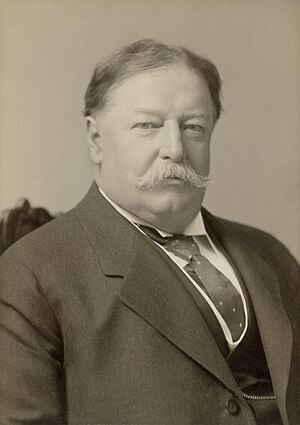Wikipedia:Main Page/Day after tomorrow
From the day after tomorrow's featured article
Did you know ...
- ... that the British National Hospital Service Reserve (poster pictured) trained volunteers to carry out first aid in the aftermath of a nuclear or chemical attack?
- ... that a 1917 agreement between France and Russia was rendered void within days because of the February Revolution?
- ... that Goethe used his unrequited love to Maximiliane Brentano as inspiration for his novel The Sorrows of Young Werther?
- ... that the cupola of Homer House is part of a 19th-century cooling system?
- ... that Grant Nel, at the age of nine, switched from gymnastics to diving after breaking both of his hands?
- ... that the New York City Police Department shut down highway and bridge traffic for the funeral of the owner of Neary's, an Irish pub?
- ... that the general manager of a California TV station canceled the interview show he hosted because of its lack of quality?
- ... that a drone attack by the Houthi military hit a target in Tel Aviv, but no sirens were activated?
- ... that the regent of the Mongol Empire between 1248 and 1251 was named "We Were Searching for a Boy"?
In the news (For today)

- Typhoon Yagi (satellite image shown) leaves more than 790 people dead across seven Asian countries.
- Michel Barnier is appointed prime minister of France by President Emmanuel Macron, leading to nationwide anti-government protests.
- An attempted jailbreak at Makala Central Prison in Kinshasa, Democratic Republic of the Congo, leaves 129 people dead.
- A Mil Mi-8 helicopter crashes in Kamchatka, Russia, killing all 22 people on board.
In two days
- 681 – At the Third Council of Constantinople, Pope Honorius I was posthumously excommunicated, with his support for monothelitism deemed to be heretical.
- 1844 – Felix Mendelssohn completed the score of the Violin Concerto, his final concerto.
- 1963 – Malaysia was formed as an independent nation from the Federation of Malaya, the Colony of Singapore, the Crown Colony of North Borneo, and the Crown Colony of Sarawak.
- 1979 – Eight people escaped from East Germany to West Germany in a home-made hot air balloon.
- 1990 – Construction of the Northern Xinjiang railway (terminus pictured) was completed between Ürümqi South and Alashankou, linking the railway lines of China and Kazakhstan and adding a sizeable portion to the Eurasian Land Bridge.
- Vitalis of Savigny (d. 1122)
- Elisabeth Bagréeff-Speransky (b. 1799)
- Vesta Tilley (d. 1952)
- Louis Ngwat-Mahop (b. 1987)
From the day after tomorrow's featured list
Nine people have served as President of Burundi since the country became a republic in 1966. The president of Burundi is the head of state and head of government, as well as the commander-in-chief of the National Defence Force. The office of the presidency was established when Michel Micombero declared Burundi a republic in a coup d'état on 28 November 1966. The first constitution to specify the powers and duties of the president was the constitution of 1974, which was adopted in 1976. The president's stated role is to represent Burundi's national unity and ensure that the laws and functions of the state are created and executed in full compliance with the constitution. Sylvie Kinigi, the first and only woman in the office, served as interim president from 1993 to 1994. Évariste Ndayishimiye (pictured) has served as president since 18 June 2020. (Full list...)
Featured picture (Check back later for the day after tomorrow's.)

|
William Howard Taft (September 15, 1857 – March 8, 1930) was the 27th president of the United States, serving from 1909 to 1913, and the tenth chief justice of the United States, serving from 1921 to 1930, the only person to have held both offices. Taft was elected president in 1908, the chosen successor of Theodore Roosevelt, but was defeated for reelection in 1912 by Woodrow Wilson after Roosevelt split the Republican vote by running as a third-party candidate. In 1921, President Warren G. Harding appointed Taft to be chief justice, a position he held until a month before his death. This photograph was taken in 1908 by the Pach Brothers studio. Photograph credit: Pach Brothers; restored by Adam Cuerden
Recently featured:
|
Other areas of Wikipedia
- Community portal – The central hub for editors, with resources, links, tasks, and announcements.
- Village pump – Forum for discussions about Wikipedia itself, including policies and technical issues.
- Site news – Sources of news about Wikipedia and the broader Wikimedia movement.
- Teahouse – Ask basic questions about using or editing Wikipedia.
- Help desk – Ask questions about using or editing Wikipedia.
- Reference desk – Ask research questions about encyclopedic topics.
- Content portals – A unique way to navigate the encyclopedia.
Wikipedia's sister projects
Wikipedia is written by volunteer editors and hosted by the Wikimedia Foundation, a non-profit organization that also hosts a range of other volunteer projects:
-
Commons
Free media repository -
MediaWiki
Wiki software development -
Meta-Wiki
Wikimedia project coordination -
Wikibooks
Free textbooks and manuals -
Wikidata
Free knowledge base -
Wikinews
Free-content news -
Wikiquote
Collection of quotations -
Wikisource
Free-content library -
Wikispecies
Directory of species -
Wikiversity
Free learning tools -
Wikivoyage
Free travel guide -
Wiktionary
Dictionary and thesaurus
Wikipedia languages
This Wikipedia is written in English. Many other Wikipedias are available; some of the largest are listed below.
-
1,000,000+ articles
-
250,000+ articles
-
50,000+ articles


